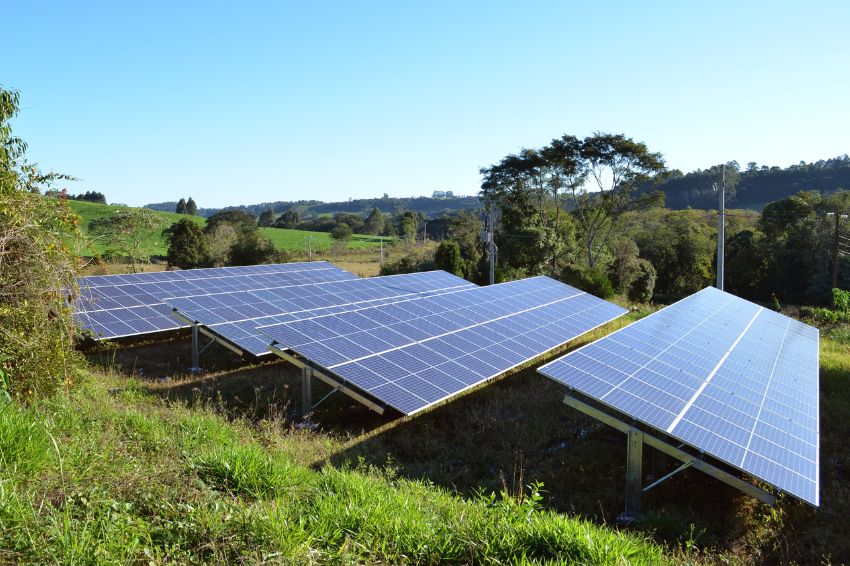O MME (Ministry of Mines and Energy) published the contributions sent by civil society, companies and entities in the national electricity sector to the Public Consultation 129/2022, which will serve as a basis for defining what the guidelines for GD valuation calculations (distributed generation) in Brazil.
O calculation, as determined by the Law 14,300, will dictate the future tariff collection model of the modality after the end of the transition periods and the end of the current rule. In all, there were more than 30 contributions received by the MME.
Among them are suggestions from entities such as ABGD (Brazilian Association of Distributed Generation), ABSOLAR (Brazilian Photovoltaic Solar Energy Association), IDEC (Brazilian Consumer Protection Institute), INEL (National Institute of Clean Energy), ONS (National System Operator), among others.
Check, in alphabetical order, the contributions made by the main entities in the energy sector:
ABGD: In the document, the Brazilian Association of Distributed Generation highlighted 20 dimensions that it considered fundamental for valuing the costs and benefits of the modality, such as the need to accelerate energy digitalization processes and guarantee the universalization of electrical energy through renewable sources. Click here to view the full document.
HUG: the Brazilian Association of Energy Traders argues that the valuation only considers the aspects that differentiate DG in relation to other expansion options and that the benefits are recalculated periodically, considering that the network topology may change. The document also argues that the effects arising from the valuation of the costs and benefits of the SCEE (Electric Energy Compensation System) do not impact Mercado Livre consumers. Click here to view the full document.
HUG: Among the points listed, the entity defended that the allocation of costs for the use of the network, by consumers who have DG, be carried out in order to reduce cross-subsidization between consumers, with a view to applying fairer tariffs. Click here to view the full document.
ABSOLATE: The Brazilian Photovoltaic Solar Energy Association highlighted seven topics for valuing the costs and benefits of the modality: energy, charges, financial risk, losses, electrical energy safety, environment and socioeconomic dimension. The guidelines include: considering the effects of GD in reducing consumer exposure to price variations in fossil fuels; the reduction of system service charges, hydrological risk and the activation of tariff flags; and the direct and indirect environmental benefits of own energy generation. Click here to view the document.
IDEC: The Brazilian Institute for Consumer Protection argues that the attributes to be considered for DG must consider both positive and negative externalities. “For example, distributed generation installations can be advantageous for the system, as they replace large transmission networks and reduce associated losses, but they also require investments in reinforcements in distribution networks”, highlighted the institution. Click here to view the full document.
EDP: EDP highlighted that agrees with the guidelines for valuing the costs and benefits of GD and proposes that a periodicity be established for analyzing its efficiency and effectiveness in light of expected developments in the segment. The entity also believes that it is necessary to consider the environmental benefits for the distributed generation segment, whether through the establishment of a regulated carbon credits market or other mechanism that may emerge. Click here to view the full document.
INEL: The National Institute of Clean Energy advocates that socio-environmental attributes and not just electrical attributes be taken into account in the valuation calculation. In the scope of public policies, the entity assesses that it would be interesting to carry out a cost and benefit analysis, as provided for in the ACB Practical Guide for Investment Projects in the Ministry of Infrastructure (SDI/ME), where the externalities associated with these attributes would be computed . Click here to view the full document.
Renewable Energy Forum: The document listed 13 suggestions that it considered to be important for valuing DG attributes. Among them, considering the value of the local energy market charged by concessionaires and the logistics of transportation and installation in the case of isolated systems, in addition to evaluating the need to expand distribution, transmission and centralized generation. Click here to view the full document.
ONS: The National System Operator assessed the need for constant reassessment and evolution of the minimum technical requirements for connecting these devices, as well as regulatory support to explore such attributes. Click here to view the full document.
















